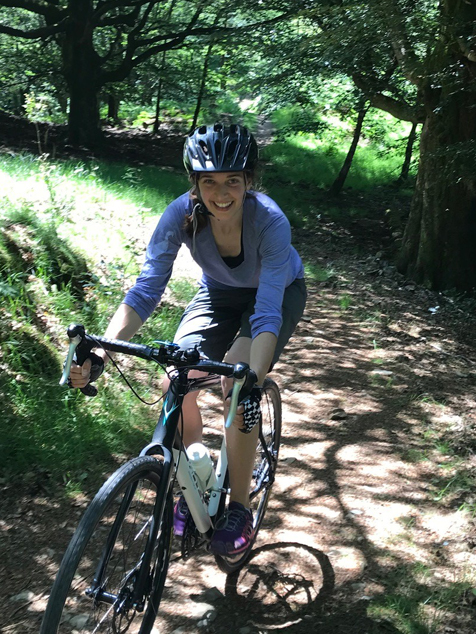Be AdventureSmart: The right gear’s a good idea!
Looking to break the shackles of the desk and head to the hills with your bike or just planning a ride with the kids on the local forest trails? Whether you are new to mountain biking or refreshing your knowledge, our guidance, developed with British Cycling will help you understand the basics to stay safe.
You have that good feeling that comes from physical exercise (gasping lungfuls of fresh air) and the breathtaking views of the British countryside. You set off in the sunshine but two hours later you have a puncture. Fortunately, you’re carrying all the spares you need in your rucksack and as the clouds gather whilst you’re replacing the inner tube, you reach into your bag for your waterproofs as the heavens open, enabling you to carry on warm and dry!
Be adventure smart: Plan for a great day with our essential kit guide for a good day mountain biking!
Clothing and Footwear
- Waterproof jacket (can always be kept in the rucksack until needed, don’t leave home without it)
- Insulating mid-layer (fleeces, soft-shell jackets, down jackets, dependent on the weather)
- Breathable base layer (look for technical materials, avoid cotton t-shirts)
- Padded cycling shorts/tights or baggy mountain bike shorts/crop trousers with hidden padding (quick drying trousers with a good range of movement, avoid denim)
- Waterproof over-trousers (a great option in a downpour)
- Hats & gloves
- Cycling shoes (Need to be comfortable and well-fitting. Choose based on your style of riding and the terrain you want to explore)
- Breathable socks (merino wool is ideal, avoid cotton if possible)
- Watch (or any reliable method of telling the time)
Bike Essentials
Bike – suitable for your planned ride
Helmet – firm fitting with rear-head coverage
Repair items – spare inner tubes, puncture kits, cable ties, duct tape, power link and link tool and some basic mechanical repairs knowledge
Pump and CO2 inflators
Tools – levers, multi-tool with chain tool, pliers
Lights – white front light and red rear light
Rucksack essentials (dry bag)
- Dry bag (to line your rucksack and keep your kit dry)
- First aid kit
- Fully charged mobile phone and power bank in a dry bag (a ziplock freezer bag works as a cheap option)
- Emergency whistle
- Map & compass (even if you use GPS)
- Headtorch
- Suncream
- Sunglasses (snow can be bright, so worth taking them in winter also)
- Bottled water (keep yourself hydrated), possibly a high energy drink
- Flask of hot drink
- High energy snacks (to give an energy boost when tired)
- Any necessary medication (with spares)
- Spare warm clothing
- Survival bag (just in case)
- Personal ID and Emergency contact details
- Cash and cards





